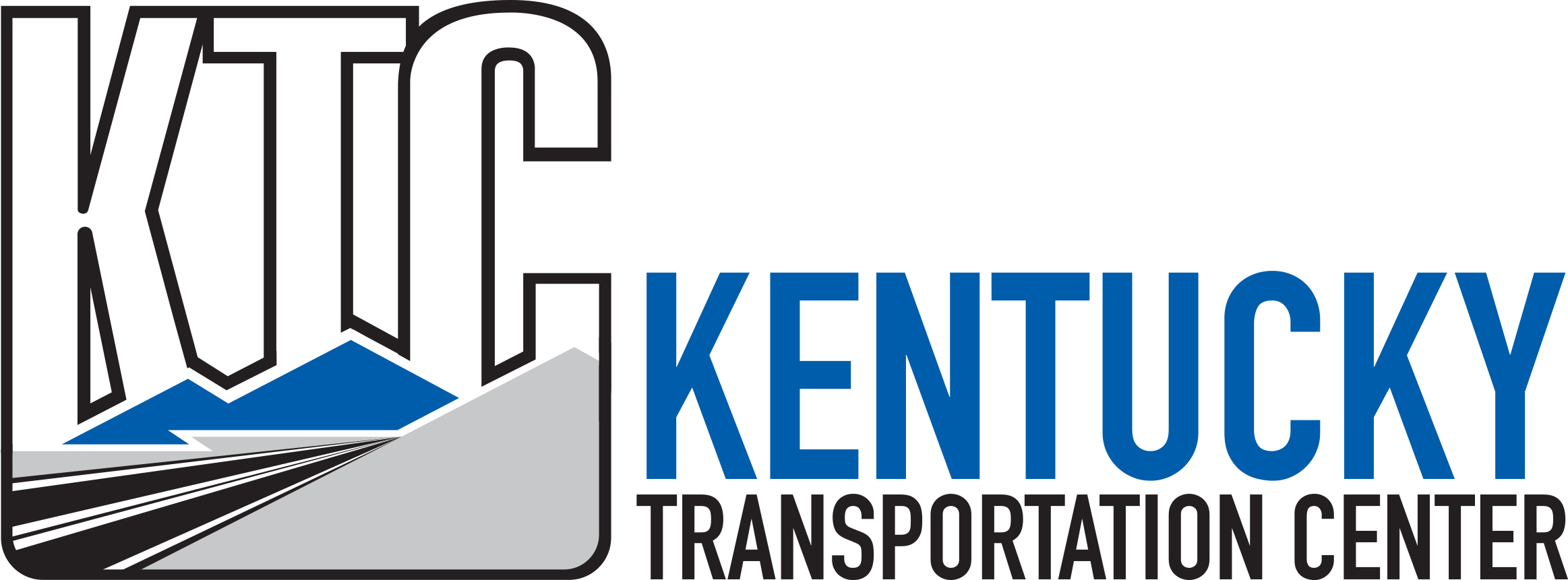Abstract
Kentucky established its Extended Weight Coal or Coal By-products Haul Road System (EWCHRS) to increase the state’s competitiveness within the coal industry and reduce financial burdens on coal haulers. A new extended-weight haul system for unrefined petroleum products will come online in 2022. To facilitate enforcement of weight limits throughout Kentucky, this report surveys literature on how overweight vehicles affect roads and bridges, describes statutes and regulations governing weight limits in the state, discusses policies and strategies used throughout the US to handle overweight vehicles, and makes recommendations for improving extended-weight policies in Kentucky. It is apparent that pavements and bridges repeatedly exposed to overweight vehicles have shorter life-cycles, but methods for quantifying deterioration rates are lacking. In both Kentucky and throughout the US, agency personnel find that not enough revenues are collected from permitting fees to offset damage caused by overweight trucks. The enforcement landscape is made complex by exemptions that apply to specific industries and commodities. Without adequate staffing and weigh station operations, robust enforcement of weight limits is very challenging. Some of the recommendations for Kentucky to improve its extended-weight policies include studying the feasibility of a statewide long-haul network that accommodates all commodities, modifying the EWCHRS fee structure to generate enough funds to repair damage inflicted by overweight vehicles, strengthen enforcement of weight limits on the EWCHRS, mandate installation of GPS systems on vehicles that travel the EWCHRS to streamline mileage reporting and improve driver awareness of prohibited routes, and eliminate inconsistencies, ambiguities, and redundancies in regulatory and statutory language.
Report Date
11-2021
Report Number
KTC-21-22/SPR20-589-1F
Digital Object Identifier
https://doi.org/10.13023/ktc.rr.2021.22
Repository Citation
Marks, P. Gayle; Wilcoxson, Jon; Gibson, Bryan; Van Dyke, Chris; Martin, Andrew; Walton, Jennifer; and Kreis, Doug, "A Review of Kentucky’s Extended-Weight Hauling Programs" (2021). Kentucky Transportation Center Research Report. 1739.
https://uknowledge.uky.edu/ktc_researchreports/1739



Notes
© 2021 University of Kentucky, Kentucky Transportation Center
Information may not be used, reproduced, or republished without KTC’s written consent.
The contents of this report reflect the views of the authors, who are responsible for the facts and accuracy of the data presented herein. The contents do not necessarily reflect the official views or policies of the University of Kentucky, the Kentucky Transportation Center, the Kentucky Transportation Cabinet, the United States Department of Transportation, or the Federal Highway Administration. This report does not constitute a standard, specification, or regulation. The inclusion of manufacturer names or trade names is for identification purposes and should not be considered an endorsement.